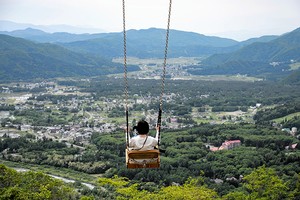By RYO KIYOMIYA/ Correspondent
February 8, 2023 at 08:00 JST
 Philippines President Ferdinand Marcos Jr. and U.S. Defense Secretary Lloyd Austin before a meeting in Manila on Feb. 2 (Ryo Kiyomiya)
Philippines President Ferdinand Marcos Jr. and U.S. Defense Secretary Lloyd Austin before a meeting in Manila on Feb. 2 (Ryo Kiyomiya)
MANILA--The United States and the Philippines have agreed to allow the U.S. military access to additional bases in the Southeast Asian country, deepening their defense collaboration to counter China.
The agreement was announced on Feb. 2 by U.S. Defense Secretary Lloyd Austin, who was visiting Manila, and his Philippine counterpart, Carlito Galvez, during a joint news conference.
On the issue of the South China Sea, where Beijing and Manila are locked in territorial disputes, Austin denounced China, saying, “the People's Republic of China continues to advance its illegitimate claims in the West Philippine Sea.”
He also reassured Manila that the U.S. commitment to the defense of the Philippines is “ironclad,” reaffirming that the Mutual Defense Treaty would be applied to a conflict in the South China Sea if the Philippines comes under attack.
The strengthening of defense cooperation between the two countries followed the U.S. administration’s accelerated efforts to bolster ties with its allies to prepare for a possible Chinese invasion of Taiwan.
The Philippines has strategic importance in terms of maritime traffic, connecting waterways from the Indian Ocean to those leading to China and Japan.
The Philippines are part of the first island chain, where the country is linked with Taiwan, as well as Japan’s Okinawa Prefecture and southern main island of Kyushu.
In the event of China’s invasion of Taiwan or a naval blockade, the Southeast Asian nation’s strategic importance would further heighten as it is located to the south of the self-ruled island with the Bashi Channel separating the two.
At a meeting between Austin and President Ferdinand Marcos Jr., the two allies reached an agreement that will allow U.S. forces to have access to four more sites across the Philippines for temporary stationing, up from the current five sites, based on the Enhanced Defense Cooperation Agreement of 2014.
While NATO is a collective defense alliance of the United States and other member nations, the security of the Asia-Pacific region is underpinned by bilateral treaties between Washington and Tokyo, Seoul and Manila, respectively.
The Biden administration describes competition with China as its “most consequential geopolitical challenge” and is set to decide the pace of the national defense strategy according to China’s moves.
However, Washington has been tied up with responses to Russia, which continues its invasion of Ukraine, over the past year.
It is pushing for a national security strategy centering on an “integrated deterrence” initiative, which calls for more collaboration with its allied nations, while placing importance on competing in the fields of economy, technology and intelligence, beyond conventional military power and nuclear forces.
The Biden administration’s Indo-Pacific strategy, compiled in February 2022, underlined integrated deterrence as its cornerstone.
In the national security strategy, released in October the same year, the administration referred to the need to enhance interoperability between U.S. forces and its allied counterparts as a pillar of integrated deterrence.
Against this backdrop, the Biden administration intends to bolster relations with the administration led by Marcos Jr., which was formed in June 2022.
U.S. Vice President Kamala Harris’ visit to the Philippines in November is in line with this effort. She toured Palawan Island in the South China Sea, where China asserts claims to an expansive swath of waters.
Although the Philippines is pitted against China in the South China Sea, Beijing remains a formidable presence in the region due to its economic clout.
A U.S. senior defense official expressed understanding of the difficult position Manila is in.
“The United States is not asking our allies and partners to choose between Washington and Beijing,” the official said. “We understand that China is an economic reality, political reality and geographical reality for the region. We are focused on making our alliance stronger.”




















A peek through the music industry’s curtain at the producers who harnessed social media to help their idols go global.
A series based on diplomatic documents declassified by Japan’s Foreign Ministry
Here is a collection of first-hand accounts by “hibakusha” atomic bomb survivors.
Cooking experts, chefs and others involved in the field of food introduce their special recipes intertwined with their paths in life.
A series about Japanese-Americans and their memories of World War II